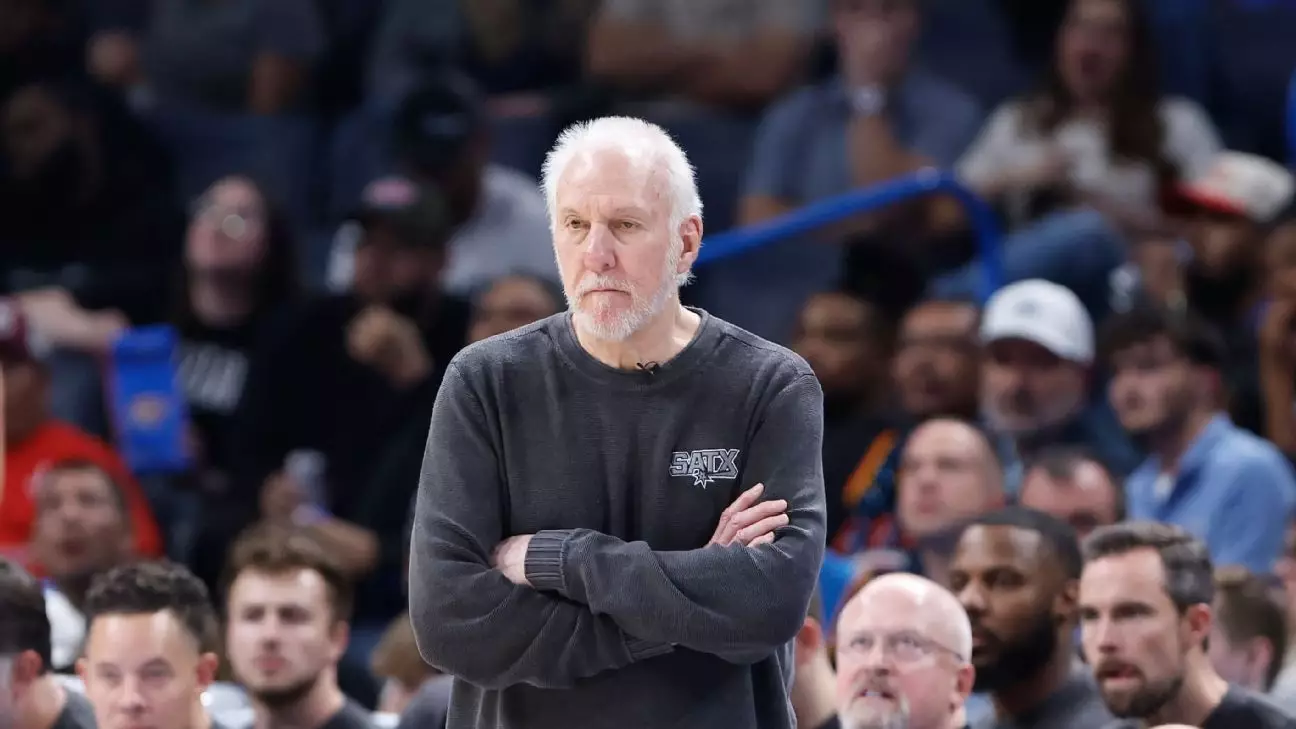The San Antonio Spurs are currently navigating a tumultuous season defined by uncertainty and adversity, not only on the court but also in the lives of those leading the franchise. With the organization facing significant personnel challenges, including the health of legendary head coach Gregg Popovich, the team’s dynamics are in a state of flux. As the franchise’s most cherished figure, Popovich’s absence has rippled through the team’s operations, affecting players, coaching staff, and fans alike.
In early November, Gregg Popovich, the NBA’s all-time winningest coach, suffered a mild stroke, prompting immediate concern for both his health and the future of the Spurs. With his recovery ongoing, it is unclear when—or if—he will return to his legendary role as head coach. At 76 years old, Popovich had already made history by surpassing Hubie Brown’s record as the oldest head coach in league history, and his potential departure now looms over the franchise like a shadow.
As the Spurs continue to contend with the realities of a challenging season, the news of Popovich’s health places an emotional burden on the entire organization. The team announced plans to rest their budding superstar Victor Wembanyama due to deep vein thrombosis in his right shoulder. The convergence of these setbacks has left the Spurs with a plethora of uncertainties, both competitive and personal, highlighting the close-knit nature of the franchise.
With Popovich out of commission, assistant coach Mitch Johnson was thrust into the interim head coaching role—a responsibility that carries both immense pressure and expectation. Johnson’s record of 21 wins and 27 losses reflects the difficulties of coaching a young team while replacing a figure as influential as Popovich. The transition period has revealed the depth of resolve required not just from the players, but also from those in leadership positions.
Point guard Chris Paul noted the unique bond formed among teammates amid adversity, suggesting that difficult circumstances have a way of forging deeper connections. The perception among players indicates a collective adaptation to the absence of a coaching titan, underscoring the resilience exhibited in the face of hardship.
Beyond his exceptional coaching statistics and accolades—including five NBA championships—Popovich’s impact extends to personal relationships and mentorship. As the Spurs’ president and dominant voice, he previously embodied the spirit of San Antonio basketball. Even from a distance, he remains influential, engaging with Johnson and players on game strategies and offering encouragement through a challenging period of adjustment.
His commitment to rehabilitation and recovery stands as a testament to his character. According to Spurs CEO RC Buford, Popovich’s approach to physical therapy reflects the same tenacity that led to his success as a coach. This resilience is a core aspect of his legacy, resonating across players—current and former—who regard him not just as a coach, but as a source of wisdom and strength.
In Popovich’s absence, the Spurs have learned that the loss of a singular leader does not equate to a loss of direction. The collective effort among players, coaching staff, and management has generated a sense of unity. General manager Brian Wright aptly highlighted this sentiment, stating that it takes a village to foster success, especially during turbulent moments.
As the Spurs continue to adapt, they must grapple with the potential long-term consequences of this season. How the team generates synergy without their iconic coach is an ongoing question that will demand creativity and resilience. The road ahead will challenge the franchise’s identity and test the mettle of everyone involved.
As the San Antonio Spurs forge through the challenges presented by health issues and player fatigue, both the future of the team and the legacy of Gregg Popovich hang in the balance. What happens next will undoubtedly define not just the current season, but the trajectory of the franchise for years to come. The resilience exhibited during these trying times may very well serve as the foundation for a new chapter in Spurs history, honoring the legacy of a coaching giant while simultaneously cultivating new stars.


Leave a Reply